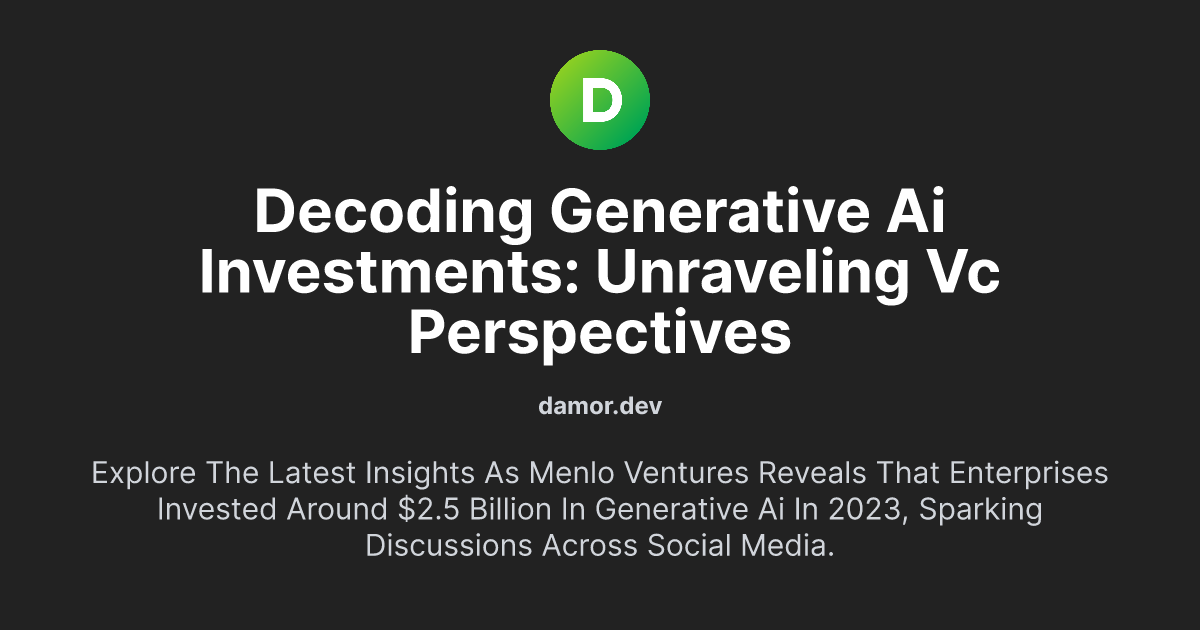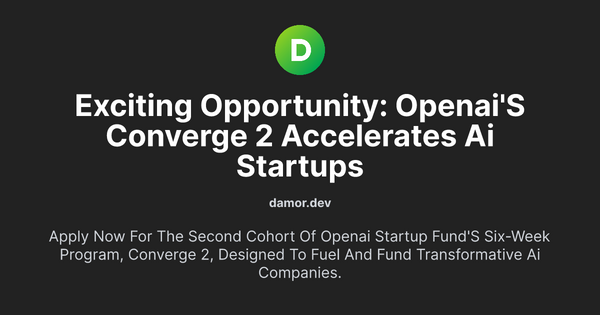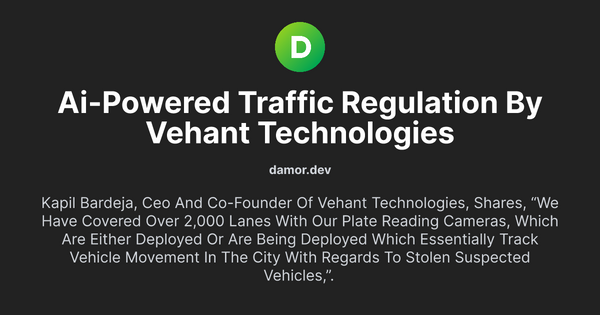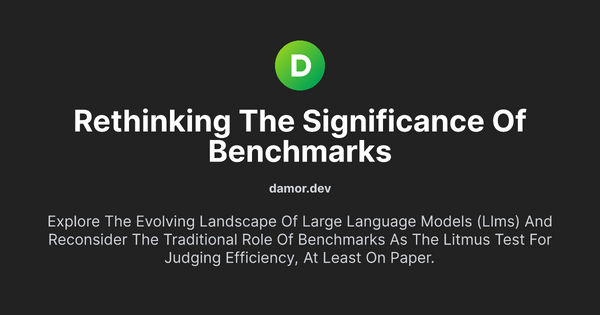Decoding Generative AI Investments: Unraveling VC Perspectives

Making Sense of Generative AI Investments
Have you heard about generative AI? A recent report from Menlo Ventures says that companies spent around $2.5 billion on it in 2023. But wait, there's confusion in the air. Over 35 venture capital firms and 15 companies are pledging to use AI responsibly, guided by Responsible Innovation Labs. They even have a 15-page guide called Responsible AI Protocol to help both investors and startups.
Sounds good, right? Well, not everyone in Silicon Valley agrees. Some worry that being too responsible might slow down the development of AI. This isn't the first time venture capitalists (VCs) have been accused of not quite getting tech right.
Breaking it Down
Let's dig into Menlo's report. They compared the $2.5 billion spent on generative AI to $70 billion on traditional AI and a whopping $400 billion on cloud software. Hold on, though. The comparison lacks details and context, making it hard to understand if it's accurate or relevant.
Here's the kicker: cloud is a big part of generative AI, so separating them doesn't make much sense. Menlo even said earlier that generative AI could take over the $140 billion consumer and enterprise software markets, contradicting their own comparison.
Different Views, Different Numbers
Goldman Sachs, a big investment bank, thinks generative AI can make work more efficient, boosting productivity by over 1% each year. However, this would need a global investment of around $200 billion in tech and workforce by 2025.
Now, other investment firms like Lux Capital and Sequoia Capital are also throwing in their two cents. Lux Capital suggests that generative AI could replace a big chunk of creative work, maybe up to 98%. That's a lot, and it's causing some anxiety.
On the flip side, Vinod Khosla believes that by 2040, 80% of jobs could be done by AI. But he's also realistic about potential downsides. Marc Andreessen takes a more positive stance, calling the idea that technology steals jobs a lie.
VCs in the Dark
It seems like everyone is a bit confused, including the VCs. They might not be the best judges of generative AI's potential, and there's a suspicion that they could be shaping reports to favor their interests.
Vinod Khosla, who invested in OpenAI, warns that many AI investments might lead to losses. He compares AI investing to a hype cycle and says only disciplined investors will see benefits.
In conclusion, the world of generative AI and VC investments is a bit of a puzzle. Different reports, different views, and lots of uncertainty. We'll have to wait and see how it all plays out.


![[Solved] ZlibError:zlib:
unexpected end of file - payload](/content/images/size/w600/2024/02/Screenshot-2024-02-18-143905.png)


